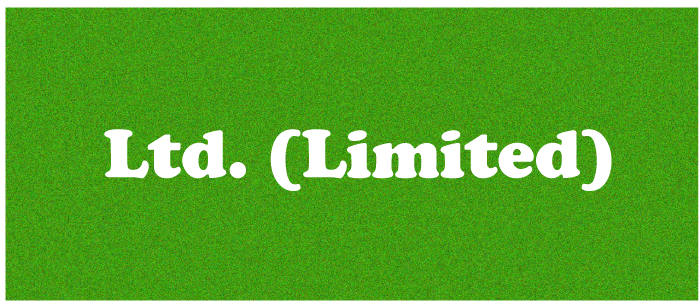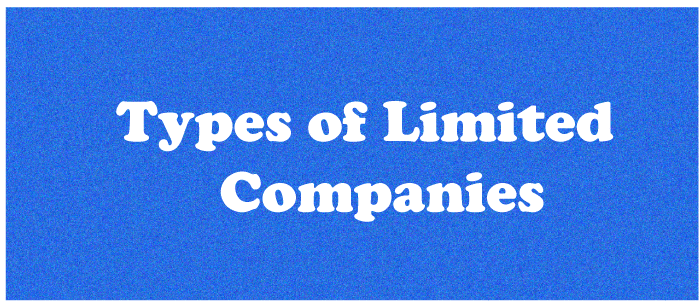Ltd. (Limited)Ltd. is a common abbreviation for "limited", a type of corporate structure available in nations such as the "United Kingdom", "Ireland", and "Canada". It is added as a suffix after the firm name, signifying the firm as a private limited company. Shareholders' liability in a limited company is constrained to the money they initially put up. The shareholders' individual assets are safeguarded if such a firm goes bankrupt. 
Ltd. Company Structure BasicsA limited company is an independent legal entity. A private limited company comprises one or more members, often known as proprietors or shareholders, who purchase shares through private sales. Directors are firm personnel responsible for all administrative duties and tax filings, although they are not required to be shareholders. The firm's finances are separate from those of the owners and taxed accordingly. The corporation owns profits, pays taxes, gives shareholders a portion as dividends, and keeps the remainder as working capital. However, only the director of the company may withdraw money to pay for the salary, dividends, or loans. A firm can become independent from its owners by forming a private limited company. After taxes are paid, the business can keep whatever profits it makes. The firm's finances must be maintained separately from personal ones to minimize confusion. In addition, public limited companies (PLCs) are more frequently used in the U.K. and some Commonwealth nations than "Inc." or "Ltd.", which are more typical in the U.S. and other countries. The PLC acronym, which must be followed by the name of the firm, serves to inform investors and anybody else dealing with the firm that it is a publicly traded and probably fairly substantial company. PLCs may or may not be traded on a stock market, depending on certain conditions. Like any other significant company, they are strictly regulated and must report their genuine financial condition so that shareholders (and prospective stakeholders) can determine the true value of their stock. However, the shareholder's passing has no bearing on the longevity of a PLC. Types of Limited Companies
Although limited company structures are widespread and codified in many countries, the laws regulating them can vary greatly from country to country. There are "public" and "private" limited companies, for instance, in the United Kingdom. Public share offerings are not permissible for private limited companies. However, for small businesses, these are the most common structures. To raise funds, PLCs may issue stock to the general public. Once the total share value threshold is reached, the shares may be traded in a stock market. Larger businesses frequently use this type of structure. A limited company is often recognized in the U.S. as a corporation (corp.) or by the suffix incorporated (inc.). Some states in the United States allow the use of the suffix Ltd. (limited) after a corporation name. Filing the proper documentation is required for such a classification; simply putting the suffix to a firm name does not offer any liability protection. In the U.S., limited companies should submit annual corporate tax returns to regulators. Limited companies and limited liability companies (LLCs) have different structures. "Public" and "Private" limited companies are distinguished in several nations. AdvantagesLiability is dispersed among several owners instead of just one since the allowed number of shareholders is unlimited. If the firm goes bankrupt, shareholders merely lose the amount they invested. Assume a private limited corporation issues 100 shares for $150 each. Shareholders A and B each possess 50 shares and have paid in whole for 25 of them. If the corporation goes bankrupt, shareholders A and B have paid $3,750, which is the worth of the 25 unpaid shares each person still owns. A private limited company provides more tax benefits than a sole proprietorship, partnership, or other similar structure. Even if an owner sells or transfers his shares, the company will continue to operate for an indefinite period, protecting jobs and resources for the community. Since a private limited company produces products at reduced costs and enhances profitability, financial institutions lend the firm more funds for operations and developments, which also boost the business's annual revenue. DisadvantagesThe amount of funds raised is limited because shares are sold privately, and the consent of all shareholders is required to sell or transfer shares to a third party outside the firm. The company may borrow money, but a director is required to personally guarantee repayment of the debt if the company can't do so. This puts the director's personal assets at risk and does not provide any protection under regulations governing private limited companies. Additional taxes apply if the firm owes a loan at the end of the year. A director is personally accountable if the enterprise goes bankrupt and the director fails to act in the best interests of the creditors.
Next TopicWhat Did Enron Do
|
 For Videos Join Our Youtube Channel: Join Now
For Videos Join Our Youtube Channel: Join Now
Feedback
- Send your Feedback to [email protected]
Help Others, Please Share










